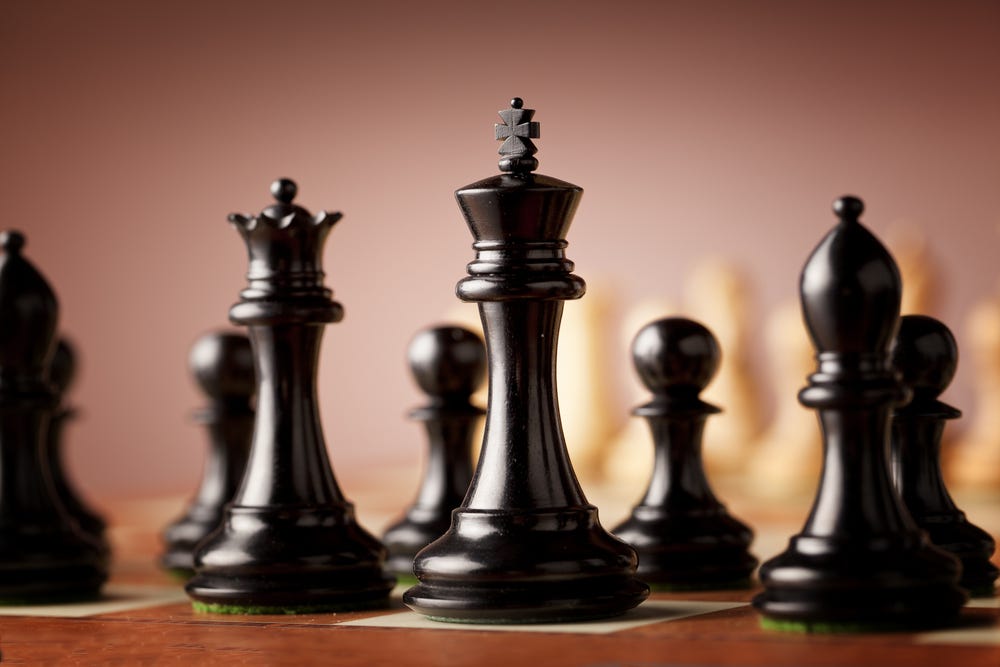The Elders Began as Fathers - 07
Multi-generational, full-orbed, law and order households
The concept of elder appears to come from the seed planted at the start of time. Elders began as fathers. They were heads of households. They made decisions for the members of the house, which included a succession plan for that future day when they died.
The household for which fathers were given responsibility included: wives, children, grandchildren, servants, livestock, vineyards, buildings, land, and anything or anyone that God might put under their care.
Interestingly enough, Abram1 was the head of a household without any of his own children for a long time. It was Abraham and Sarah and a slew of others, but no offspring - until Ishmael (born to Hagar) and Isaac came along.2
Yet Abram still had a household. It contained all that God had entrusted to him. A short definition of a household might sound like this: a household is that which includes all people, and property, for which God holds a person accountable.
Just a little investigative work, and you will notice that Abram’s household included tents, sheep, oxen, male donkeys, male servants, female servants, female donkeys, and camels (see Genesis 12:16). It was so massive that he could muster from within his household 318 fighting-aged men. That is incredible!3
Thankfully, even without children of his own, Abram was an effective steward. God told him He would make him the father of a multitude of nations.4 In other words, a good elder will likely have proved himself responsible for more than just his wife and kids – so to speak.
Abram was a good father. He was a godly householder. He showed interest in the wellbeing of all entrusted to his care. This required him to establish rules and teach them and enforce them (aka discipline). A godly father chooses God’s rules. An ungodly father chooses his own. And though discipline is a word that makes some bristle, biblical discipline is rooted in love.5
So then, historically, a good father made decisions for the benefit of his descendants. He acted as a Benefactor. He led and trained and provided for his children, grandchildren and all others for whom he had taken on responsibility.
A good father (think householder) does not abandon the people and things God has entrusted to him. He is going to stick with them. Furthermore, he will disallow disobedience and chaos to overcome and swallow his loved ones. This will require attention to law and order.6 And, in return, his descendants will honor such love, attentiveness, and loyalty. They will not want to leave him, for where would they go to find a better place and better care?
This is why it is irksome to me to watch a movie where a character is fed up, tired of living in the same community they grew up in. They see their town and people as a dead end, soul-sucking, dream-killing, etc. They want to escape! To be free from the chains of their upbringing! This character type aggravates me.
Yet, I imagine that if a person grew up in a household that abused them, or if they had no semblance of a household at all, then leaving would offer a nice change. Otherwise, Please! When I see those cliche scenes I think it sounds unappreciative and self-centered and judgmental. That was my rant. But to continue.
When a father acts as a good elder (householder) you begin to understand how a family might very well grow up in a community and stay there and participate in its life. Indeed. Why leave a people and a place that loves you? It would have to be for some higher purpose (a calling) of God that cannot be met by staying.
Without such a calling, you can understand how children and grandchildren and great-grandchildren, and aunts and uncles and cousins would remain in a community, and be found in close proximity to one another. They’d likely build homes within the community, work for the family business, or an uncle’s business, or they’d start their own. They’d probably attend mutual churches, celebrate holidays, influence local government, etc. These are not bad things but good things if the family is made of good people. It is good for the community too!
God desires for fathers to become good leaders. And as history developed from Adam to Abraham on onward, God saw fit to put these kinds of men into church life and into civil life. He would take experienced men and make them elders of these other jurisdictions and not merely the family.
Abram’s name was changed to Abraham later, in Genesis 17:5-6.
Genesis 15:2-3 “But Abram said, ‘O Lord GOD, what will you give me, for I continue childless, and the heir of my house is Eliezer of Damascus?’ And Abram said, ‘Behold, you have given me no offspring, and a member of my household will be my heir.’”
Genesis 14:14 “When Abram heard that his kinsman had been taken captive, he led forth his trained men, born in his house, 318 of them, and went in pursuit as far as Dan.”
Father Abraham has many sons and I am one of them, spiritually speaking.
Hebrews 12:6 explains God’s motivation for discipline. It says, “For the Lord disciplines the one he loves, and chastises every son whom he receives.”
Certainly, the civil magistrate is not the inventor nor sole possessor of law and order. The magistrate came after God, family and church. “Law” is based upon God’s character. Perfect “order” is found in the relationship of the Father, Son and Holy Spirit. Adam, Eve, Cain, Abel, Seth, etc. had all entered God’s world. The family was formed and required to produce household rules and discipline based upon God’s law and sanctions. Worship was included in man’s inception and it reinforced God’s law and had its own sanctions. Civil society came afterward and law and order became its mission for the broader society.


